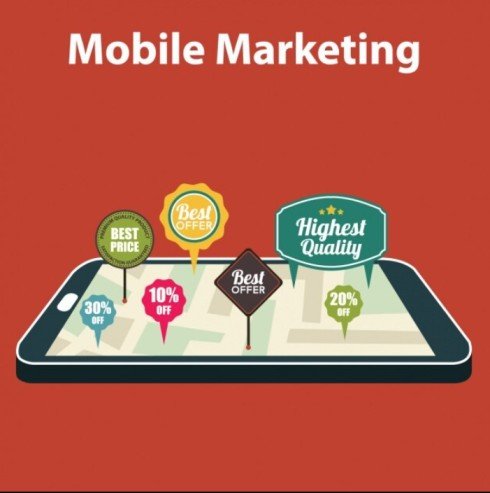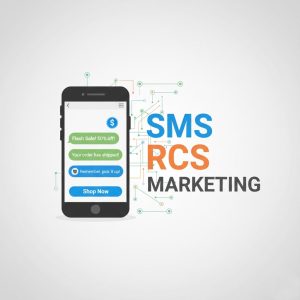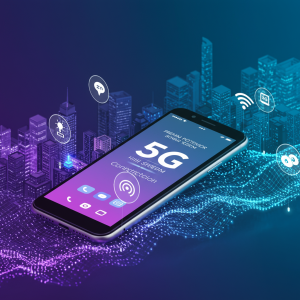Why Mobile Marketing Is Important: Strategies For Success In A Mobile-First World

The Mobile Revolution Is Here
In today’s digital landscape, smartphones have become an extension of ourselves. The average American checks their phone 344 times per day—roughly once every 4 minutes. This profound shift in consumer behavior has revolutionized how businesses connect with their audience, making mobile marketing strategies not just beneficial but essential for survival and growth.
Mobile marketing isn’t simply a trend or a subset of digital marketing—it’s rapidly becoming the primary channel through which consumers discover, research, and purchase products and services. With over 7.3 billion smartphone users worldwide as of late 2024, businesses that fail to optimize for mobile are effectively invisible to a vast portion of their potential customer base.
This comprehensive guide explores why mobile marketing deserves a central place in your marketing strategy, the tangible benefits it offers, and practical approaches to implementing effective mobile marketing campaigns that drive measurable results.
The Undeniable Power of Mobile Presence
Mobile Device Usage Statistics That Can’t Be Ignored
The numbers tell a compelling story about mobile dominance:
- Mobile devices generate approximately 60% of all internet traffic worldwide
- The average adult spends over 5 hours per day on their mobile device
- 70% of digital media time is spent on mobile applications
- Mobile commerce (m-commerce) accounts for over 73% of all e-commerce sales
- 92% of internet users access the internet via mobile devices
These statistics highlight an inescapable truth: consumers live on their mobile devices, and businesses must meet them there. According to research from Google, 61% of users are unlikely to return to a website that doesn’t offer a satisfactory mobile experience, with 40% visiting a competitor’s site instead.
The Shift to Mobile-First Consumer Behavior
Consumer behavior has fundamentally changed, with mobile devices becoming the primary touchpoint in the customer journey:
- Research: 82% of smartphone users consult their phones before making in-store purchases
- Discovery: 57% of users discover new brands and products directly on their mobile devices
- Decision-making: 69% of smartphone users are more likely to buy from companies whose mobile sites help them easily find answers to their questions
- Post-purchase: Mobile devices are the preferred method for leaving reviews, contacting customer service, and engaging with brands after purchase
This shift has prompted Google and other search engines to adopt mobile-first indexing, where the mobile version of a website is considered the primary version for ranking and indexing. As Harvard Business Review notes, “The future of business is mobile, and companies that fail to adapt will struggle to remain relevant.”
Key Benefits of Mobile Marketing for Business Growth

Unprecedented Audience Reach and Engagement
Mobile marketing provides unparalleled access to consumers regardless of location or time:
- Always-on connectivity: Unlike desktop computers, smartphones are almost always within arm’s reach, creating constant opportunities for brand engagement
- Location-based targeting: Mobile technology enables precise geographical targeting, allowing businesses to deliver context-relevant messages when users are near physical locations
- Immediate communication: Push notifications, SMS marketing, and mobile apps enable instant communication with customers, with average open rates for SMS exceeding 98%
At Mobile Dominate, we’ve observed that well-executed mobile engagement strategies typically see 4-7x higher interaction rates compared to desktop-only approaches.
Enhanced Personalization and Customer Insights
Mobile devices provide rich data that enables hyper-personalized marketing:
- Behavioral data collection: Mobile apps and mobile-optimized sites provide detailed insights into user preferences, behaviors, and purchasing patterns
- Contextual relevance: Mobile marketing allows for real-time adaptation based on user context (location, time, weather, previous interactions)
- Segmentation opportunities: The wealth of mobile data enables precise customer segmentation for targeted campaigns
According to research from Marketing Week, personalized mobile messages have been shown to increase conversion rates by 27.5% compared to non-personalized approaches.
Read our latest blog Mobile Marketing Automation
Superior ROI and Conversion Potential
Mobile marketing typically delivers stronger return on investment than traditional marketing channels:
- Cost-effective campaigns: Mobile marketing initiatives generally require lower investment than traditional media while providing more precise targeting
- Higher conversion rates: Mobile-optimized experiences typically show 64% higher conversion rates compared to non-optimized alternatives
- Improved attribution tracking: Mobile platforms offer comprehensive tracking capabilities, allowing marketers to accurately measure campaign performance
- Shorter sales cycles: The immediacy of mobile interaction often results in faster customer decision-making processes
Essential Mobile Marketing Strategies for 2025
Mobile-Optimized Website Design: The Foundation of Success
A responsive, mobile-friendly website is non-negotiable for modern businesses:
- Responsive design implementation: Your website must automatically adjust to provide optimal viewing experiences across all devices and screen sizes
- Mobile page speed optimization: Pages should load in under 3 seconds—each additional second of load time increases bounce rates by 12%
- Touch-friendly navigation: Navigation elements must be sized and spaced appropriately for finger tapping, with a recommended minimum tap target size of 44×44 pixels
- Simplified forms and checkout processes: Mobile forms should be concise, using auto-fill features and minimizing typing requirements
Our research at Mobile Dominate indicates that businesses that transition to truly mobile-optimized websites (not merely mobile-compatible) see an average increase of 27% in mobile conversion rates.
App-Based Marketing: Building Direct Customer Connections
Mobile applications provide direct access to customers and substantial engagement opportunities:
- Value-driven app development: Successful mobile apps solve specific problems or enhance the customer experience in unique ways
- Push notification strategy: Strategic push notifications can increase app engagement by 88% when properly implemented
- In-app personalization: Tailoring the in-app experience based on user behavior leads to 30% higher conversion rates
- App store optimization (ASO): Implementing proper ASO techniques improves discoverability and download rates
SMS and Messaging Marketing: Direct and Impactful
Text messaging remains one of the most effective mobile marketing channels:
- Permission-based SMS campaigns: Building an opt-in SMS subscriber list provides direct access to interested customers
- Rich messaging integration: Advanced messaging formats like RCS (Rich Communication Services) enable enhanced visual messaging experiences
- Conversational commerce: Implementing chatbots and messaging-based purchasing streamlines the customer journey
- Cross-channel coordination: SMS campaigns work best when integrated with email, app notifications, and other marketing channels
Mobile Search and SEO: Visibility When It Matters Most
Mobile search behavior differs significantly from desktop search patterns:
- Local SEO optimization: 76% of people who search for something nearby on their smartphone visit a business within a day
- Voice search optimization: With over 50% of searches now conducted by voice, optimizing for natural language queries is essential
- Mobile SERP features: Implementing structured data to leverage mobile SERP features like rich snippets and knowledge panels
- AMP implementation: Accelerated Mobile Pages can significantly improve mobile search visibility and user experience
According to industry expert Neil Patel, “Mobile SEO isn’t just about technical optimization—it’s about understanding mobile user intent and designing content experiences that satisfy mobile-specific needs.”
Mobile Social Media Marketing: Where Attention Lives
Social media consumption has become predominantly mobile-based:
- Platform-specific mobile content: Creating content specifically designed for mobile social media consumption
- Social commerce integration: Implementing seamless shopping experiences within social platforms
- Instagram and TikTok marketing: Leveraging visual platforms where mobile dominates
- Mobile video optimization: Formatting video content for vertical viewing and sound-off environments
Overcoming Mobile Marketing Challenges

Privacy Concerns and Data Regulations
Mobile marketing faces increasing scrutiny regarding user privacy:
- First-party data strategies: Developing strategies to collect and leverage first-party data as third-party cookies phase out
- Transparency in data usage: Clearly communicating how user data is collected and used builds trust and compliance
- Consent-based marketing: Implementing robust opt-in processes and preference centers
- Compliance with regulations: Ensuring adherence to GDPR, CCPA, and other regional privacy regulations
Cross-Device Attribution and Measurement
Tracking user journeys across multiple devices presents unique challenges:
- Unified customer profiles: Implementing technology that connects user identities across devices
- Attribution modeling: Adopting sophisticated attribution models that account for cross-device interactions
- Customer journey mapping: Understanding how mobile interactions contribute to the overall customer experience
Technical Implementation and Resource Allocation
Executing effective mobile marketing requires technical expertise and resources:
- Progressive implementation: Starting with high-impact, low-complexity mobile marketing initiatives
- Technology selection: Choosing mobile marketing platforms that integrate with existing marketing technology
- Team training: Ensuring marketing teams understand mobile-specific best practices and opportunities
- Testing and optimization: Implementing continuous testing protocols for mobile marketing elements
The Future of Mobile Marketing: Emerging Trends
Augmented Reality and Mobile Experiences
AR technology is transforming mobile marketing possibilities:
- Virtual try-on experiences: Allowing customers to visualize products in their environment or on themselves
- Interactive brand experiences: Creating immersive AR-based brand interactions
- Location-based AR: Implementing augmented experiences tied to physical locations
5G Impact on Mobile Marketing
The widespread adoption of 5G technology will enable:
- High-definition video marketing: Delivering seamless high-definition video experiences
- Real-time interactive content: Creating sophisticated interactive content without loading delays
- IoT integration: Connecting mobile marketing with the broader ecosystem of connected devices
AI and Machine Learning in Mobile Optimization
Artificial intelligence is revolutionizing mobile marketing optimization:
- Predictive personalization: Anticipating user needs before they express them
- Automated content optimization: Using AI to test and refine mobile content in real-time
- Behavioral pattern recognition: Identifying complex user patterns that human analysis might miss
Conclusion: Mobile Marketing as a Strategic Imperative
Mobile marketing isn’t simply another channel in your marketing mix—it’s rapidly becoming the primary arena where customer relationships are built and nurtured. As smartphone usage continues to increase and mobile technologies evolve, the gap between mobile-savvy businesses and their competitors will widen.
The most successful companies will be those that view mobile not just as a tactical consideration but as a strategic lens through which all customer interactions are evaluated and optimized. By embracing the strategies outlined in this guide and staying attuned to emerging mobile trends, businesses can position themselves for sustained growth in an increasingly mobile-first world.
The mobile revolution isn’t coming—it’s already here. The question isn’t whether your business should invest in mobile marketing, but how quickly and effectively you can implement strategies that leverage the unprecedented opportunities mobile presents.
For more information on implementing effective mobile marketing strategies, visit Mobile Dominate for comprehensive resources, case studies, and expert guidance tailored to your industry needs.





